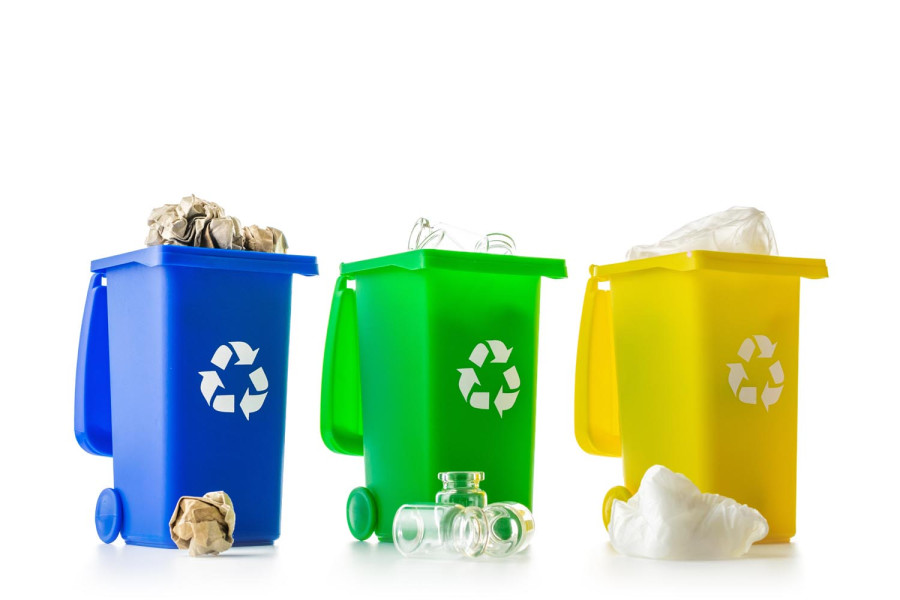Culture & Lifestyle
About time we started using dustbins
Nepalis are yet to learn the value of proper waste disposal. And the problem only seems to be getting bigger.
Somy Bhattarai
Dustbins, especially ones placed in public spaces, must be tired of us throwing small chocolate wrappers, noodle packaging, bottles, and other waste carelessly on the roads instead of disposing them inside the bin which is there waiting with the words ‘use me’ written all over it. It’s crucial to reflect on how this habit can disrupt the waste management cycle that we have been struggling with since urbanisation. We often desire to have access to parks for relaxation, hiking trails for adventure, picnic spots for leisure, and beautiful backgrounds for our social media profiles. However, we fail to acknowledge the potential consequences of our careless habit of littering at such places. If we carry on with such careless actions, these beautiful locations will be transformed into dumps filled with plastic.
The English proverb ‘5 seconds in your hand, 500 years in the sea’ does a great job of reminding us how our materialistic buys–particularly ones made from plastic–will affect the planet’s ecosystem for centuries to come. It emphasises how our small actions can have significant consequences in the long run. This is very relevant for us as waste continues to be the most neglected and troublesome issue faced by Nepalis—and all of this is a result of our own actions.
We are taught to dispose of our waste in the dustbin from our kindergarten days. However, as grown adults, we still struggle to follow this basic habit and expect other individuals to deal with it. In fact, I’ve seen people care less and less about where they throw their trash as they grow older and become ‘more mature’.
During my recent trip from Kathmandu to Kanchanpur, I noticed that the highways were littered with plastic covers and bottles, even though most buses that frequent the highway have dustbins for passengers to use installed inside. Something else I noticed was that when the bus neared Bardia National Park, the driver instructed us not to throw any waste outside the window, as it was strictly prohibited there and could result in a penalty. No passenger threw any waste outside the window. This incident is an excellent example of how when strict rules are in place, people do change their behaviour and avoid littering.
The management of waste is an even bigger issue for Nepalis in urban areas. Proper waste collection, segregation, and disposal require a lot of planning and strict execution which isn’t happening. Although all of this should be handled by the government, as individuals inhabiting the land, it is also our responsibility to manage our own waste. One of the simplest things we can do for this is to throw our waste in the dustbin whenever we are out of our homes.
The issue of not properly disposing of waste may seem minor, but it is actually the initial step in waste management. It is a preventive measure before we get to a point where a serious cure is needed. Carelessly throwing trash around leads to visual pollution, which can cause eco-anxiety, a term coined by the American Psychology Association (APA) referring to the constant fear of environmental crises such as pollution and climate change.
While Nepal has laws on waste management with serious repercussions, they aren't being implemented tightly. The Solid Waste Management Act of 2011 includes provisions for penalties that vary according to the type of offence committed in relation to solid waste management. The maximum penalty for certain offences can be up to Rs100,000. However, it is being reported that the law is only being applied in a limited number of cases, and many activities that are considered offensive in terms of waste management are not being addressed by the law. Kathmandu Metropolitan City has issued multiple notices regarding waste segregation, but none of them have been successfully implemented so far.
Indiscriminate disposal of waste can have serious health and environmental concerns. To begin with, it can facilitate the spread of diseases by attracting disease-carrying pests like rats, mosquitoes, and flies. Additionally, the burning of waste can release toxic chemicals into the air, which can lead to respiratory problems for those living in the vicinity. Thirdly, waste can contaminate the soil and water, making them unsafe for human and animal consumption. This, in turn, can disrupt the food chain as animals consuming the contaminated food can become sick or even die. Lastly, waste can spoil the natural beauty of a place, hindering tourism and impacting the local economy negatively.
Throwing waste in dustbins is not a matter of inadequate education. It actually stems from our own negligence or indolence. Encouraging people to use dustbins requires a multifaceted approach, which must be complemented by government policies and plans. This involves ensuring that there are enough dustbins available, arranging for timely waste collection, and imposing strict penalties for littering. If we all use the dustbin as intended, the problem of waste can be comprehended.




 14.24°C Kathmandu
14.24°C Kathmandu



.jpg&w=200&height=120)











